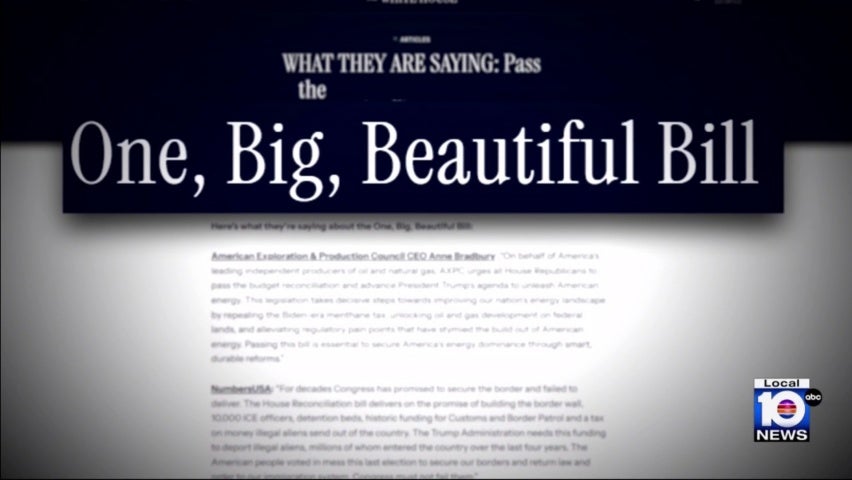
Baseball Scouts Sue Major League Baseball for Age Discrimination

Jeff Scholzen put his heart and soul into scouting young baseball players in Utah.
For 20 years, the Hurricane native said he spent thousands of hours on the road away from his family, missing birthdays and anniversaries, trying to find the next prospect that could have a professional career in a state not always known for its baseball talent.
But in August 2020, in the first few months of the COVID-19 pandemic, Scholzen was let go from his scouting job with the Milwaukee Brewers. He said he was told his contract wouldn’t be renewed because the team was “restructuring due to COVID.” At the time, the virus was known to disproportionally affect older people.
But Scholzen, 55, didn’t buy that reason.
“You put your life into it,” Scholzen told The Salt Lake Tribune. “You don’t get rich doing it, but it pays the bills and the benefits are great. And then it ends because somebody wants to discriminate.”
Scholzen is one of 17 baseball scouts across the country suing Major League Baseball and its teams, alleging age discrimination in employment practices. The lawsuit alleges the league and its teams violated the Age Discrimination in Employment Act by denying employment to older, more experienced scouts at various times in 2020, 2021 and 2022 in favor of “younger scouts.”
“We do not comment on pending litigation,” an MLB spokesperson said. “However, we look forward to refuting these claims in court.”
Discrimination During the COVID-19 Pandemic
The lawsuit claims teams used the COVID-19 pandemic as an excuse to discriminate against scouts older than 40. At the time, those scouts expected to be rehired once the pandemic ended. But that never happened, the lawsuit states.
The lawsuit also claims teams chose to let go of older scouts based on the idea they’d be unwilling or unable to use analytics as an evaluation tool for their jobs. In court documents, the scouts refute that idea as well.
“Indeed, many of the older scouts that [MLB and its teams] have terminated or refused to reemploy have utilized statistics since the early 1900s,” the lawsuit says. “Various types of statistical analysis have always been among the tools that Scouts utilize to better understand the projection of professional baseball players.”
Life After Pro Scouting
After Scholzen’s time with the Brewers, court documents say he sought scouting roles with 13 teams, including the Boston Red Sox, Los Angeles Angels and New York Yankees. He has since found a way to use his scouting skills in his home state, and is currently the Utah scouting director for Prep Baseball Report.
Scholzen spent 20 years in the major leagues as a scout with the Milwaukee Brewers and Los Angeles Angels. He was also the head baseball coach at Southern Utah University in the mid-90s.
He said the silver lining of being out of the pro scouting game is being home more and getting to spend more time with his family. And he’s still helping Utah players get to college or the pros. He cited former Pleasant Grove High school player Payton Henry, who made his MLB debut in 2021; and Orem native Paxton Schultz, who played at Utah Valley University and is now playing at the Triple-A level.
Scholzen also said the younger scouts teams have hired to replace the older ones often are asked to seek information from the older ones due to their knowledge, experience and networks. That doesn’t sit well with him.
“They’re reaching out and asking us for phone numbers and emails and coaches’ numbers and wanting to use our network and us to help them,” Scholzen said. “It’s pretty distressing when [teams are] trying to use us and abuse us. But the information they want from us could be very attainable if they’d just hire us.”
Seeking Justice and Compensation
The 17 plaintiffs suing the league and its teams are seeking back pay and other damages.
“We want MLB and the teams to pay these guys because that’s fair and it’s the right thing to do,” said Mitchell Albeida, one of the attorneys on the case. “These men have lost years of pay and benefits because MLB and the clubs have kept them from working only because they’re older.
“Professional baseball makes billions of dollars in gross revenues each year. They can afford to pay these individuals for what they’ve been deprived of.”
Discriminatory Hiring Practices
Court documents detail two instances when Scholzen reached out to MLB teams for jobs and the teams’ reasoning for not hiring him. The first was with the Yankees, who told him “ownership did not have the money to hire scouts.” The lawsuit argues the team has one of the highest payrolls in the sport, thereby making the lack of funds argument an “excuse” and “a pretext for discrimination.”
In another instance, the Giants told Scholzen they “didn’t know if ownership would allow a new hire” because some scouts already employed were set to retire and they “didn’t know if they would be allowed to replace them or not.”
SDGs, Targets, and Indicators
-
SDG 8: Decent Work and Economic Growth
- Target 8.5: By 2030, achieve full and productive employment and decent work for all women and men, including for young people and persons with disabilities, and equal pay for work of equal value.
- Indicator 8.5.1: Average hourly earnings of female and male employees, by occupation, age group, and persons with disabilities.
-
SDG 10: Reduced Inequalities
- Target 10.2: By 2030, empower and promote the social, economic, and political inclusion of all, irrespective of age, sex, disability, race, ethnicity, origin, religion or economic or other status.
- Indicator 10.2.1: Proportion of people living below 50 percent of median income, by age, sex, and persons with disabilities.
Analysis
The issues highlighted in the article are connected to SDG 8 (Decent Work and Economic Growth) and SDG 10 (Reduced Inequalities).
SDG 8: Decent Work and Economic Growth
The article discusses the alleged age discrimination faced by older baseball scouts in employment practices. This relates to SDG 8’s target of achieving full and productive employment and decent work for all individuals. The scouts claim that they were denied employment opportunities due to their age, which goes against the principles of equal pay for work of equal value. The article also mentions the scouts’ loss of pay and benefits, highlighting the need for fair treatment in the workplace.
SDG 10: Reduced Inequalities
The article addresses the issue of age discrimination, which is a form of inequality. The older scouts allege that they were let go in favor of younger scouts, indicating a potential age-based bias in employment decisions. This goes against SDG 10’s target of promoting the social, economic, and political inclusion of all individuals, irrespective of age. The article also mentions the financial resources of MLB teams, suggesting that the lack of funds argument used to justify not hiring older scouts may be a pretext for discrimination.
Based on the article’s content, the following targets and indicators can be identified:
Target 8.5: By 2030, achieve full and productive employment and decent work for all women and men, including for young people and persons with disabilities, and equal pay for work of equal value.
- Indicator 8.5.1: Average hourly earnings of female and male employees, by occupation, age group, and persons with disabilities.
The alleged age discrimination faced by older baseball scouts relates to the target of achieving equal pay for work of equal value. The scouts claim that they were denied employment opportunities based on their age, which affects their ability to have full and productive employment.
Target 10.2: By 2030, empower and promote the social, economic, and political inclusion of all, irrespective of age, sex, disability, race, ethnicity, origin, religion or economic or other status.
- Indicator 10.2.1: Proportion of people living below 50 percent of median income, by age, sex, and persons with disabilities.
The age discrimination faced by older scouts highlights the need to promote the social and economic inclusion of all individuals, irrespective of age. The article mentions the loss of pay and benefits experienced by the older scouts, indicating a potential impact on their income and financial well-being.
Table: SDGs, Targets, and Indicators
| SDGs | Targets | Indicators |
|---|---|---|
| SDG 8: Decent Work and Economic Growth | Target 8.5: By 2030, achieve full and productive employment and decent work for all women and men, including for young people and persons with disabilities, and equal pay for work of equal value. | Indicator 8.5.1: Average hourly earnings of female and male employees, by occupation, age group, and persons with disabilities. |
| SDG 10: Reduced Inequalities | Target 10.2: By 2030, empower and promote the social, economic, and political inclusion of all, irrespective of age, sex, disability, race, ethnicity, origin, religion or economic or other status. | Indicator 10.2.1: Proportion of people living below 50 percent of median income, by age, sex, and persons with disabilities. |
Behold! This splendid article springs forth from the wellspring of knowledge, shaped by a wondrous proprietary AI technology that delved into a vast ocean of data, illuminating the path towards the Sustainable Development Goals. Remember that all rights are reserved by SDG Investors LLC, empowering us to champion progress together.
Source: sltrib.com

Join us, as fellow seekers of change, on a transformative journey at https://sdgtalks.ai/welcome, where you can become a member and actively contribute to shaping a brighter future.





